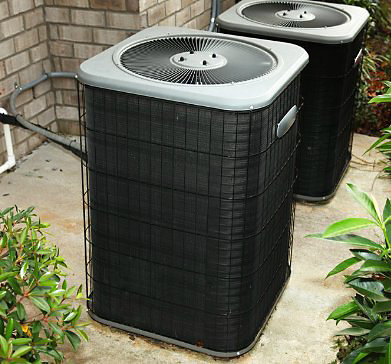The Ultimate Guide To Choosing HVAC Systems

January 17, 2016
We often take for granted the fact that HVAC Systems have a big impact on our quality of life. Because it is a significant investment, choosing a HVAC system involves careful planning so as to ensure that we are comfortable all year round. Here are the steps that you need to take in order to choose the right HVAC system for your home:
Step 1: Check your ductwork
Purchasing the right equipment is not all that is involved in choosing a HVAC system for your home. Employ a professional contractor to inspect the ducts that are currently installed in your home to ensure they are in good condition before starting your search. Poorly sealed joints or breakages in the ductwork can result in a 30% efficiency loss in the entire system. The contractor will properly insulate the ducts and clear them of dust and any other debris that would further reduce the system’s efficiency.
Step 2: Finding a Furnace
Due to the importance of having a proper heating system, you should consider replacing your old heating system with a newer energy-efficient system, a move that can save you up to 20% in energy costs. Older furnaces have Annual Fuel Utilization Efficiency (AFUE) ratings of as low as 56% while newer energy-efficient furnaces have high efficiency ratings, some as high as 98.5%. These higher efficiencies have been achieved through improvements in the design of the air handler. Take into consideration the fact that there are three basic choices for air handler types when choosing your system:
• Single-state Air Handlers
These were widely used in older furnaces. They have only one speed setting, i.e. high. The motors in these air handlers run at maximum speed regardless of the indoor heating requirements. This results in a lot of wasted energy as the unit tries to keep the house warm.
• Two-stage Air Handlers
These have motors that can run on two settings, i.e. low and high. This allows you to save energy since the low setting is usually adequate enough to maintain a comfortable indoor temperature. High speed settings are only needed when large amounts of warm air are instantly required.
• Variable Speed Air Handlers
These have motors that can run at varying speeds. This allows for greater energy efficiency because you can choose the optimal speed needed to maintain the indoor temperature. It is vital to ensure that you get the right size equipment for your home so as to ensure greater efficiency. Ask a contractor to calculate the size of the heating system that your house needs to ensure optimal and efficient operations.
Step 3: Finding an Air Conditioner
An efficient and high performance air conditioner is vital for keeping your home cool as well as maintaining indoor air quality. Efficiency ratings for air conditioners can be determined based on their Seasonal Energy Efficiency Ratio (SEER). A higher number indicates higher energy efficiency. Upgrading to an air conditioner with a high SEER can help you to reduce your energy bills by up to 40%. Choose an air conditioner with a SEER that is not less than 16. Purchase only air conditioners with variable-speed scroll compressors. These models produce less noise than older models with reciprocating compressors. Also ensure that you choose an air conditioner with an all-aluminium evaporator coil. These are less susceptible to leaks and corrosion compared to the copper and steel evaporator coils of older units.
Step 4: Consider Using a Heat Pump Instead
If you prefer an all-in-one heating and cooling system, consider buying a heat pump. Heat pumps work just like air conditioners – when in cooling mode, it uses a refrigerant to remove heat from the inside of your home. However, you can use the reverse valve to change the direction in which the refrigerant flows, thereby allowing the heat pump to heat your home by picking warmth from the outside and bringing it inside the house. These are the most efficient electrical heating systems currently available on the market. You can easily knock off up to 40% from your heating bill. Talk to a professional contractor for more information on choosing the best system for your home.
